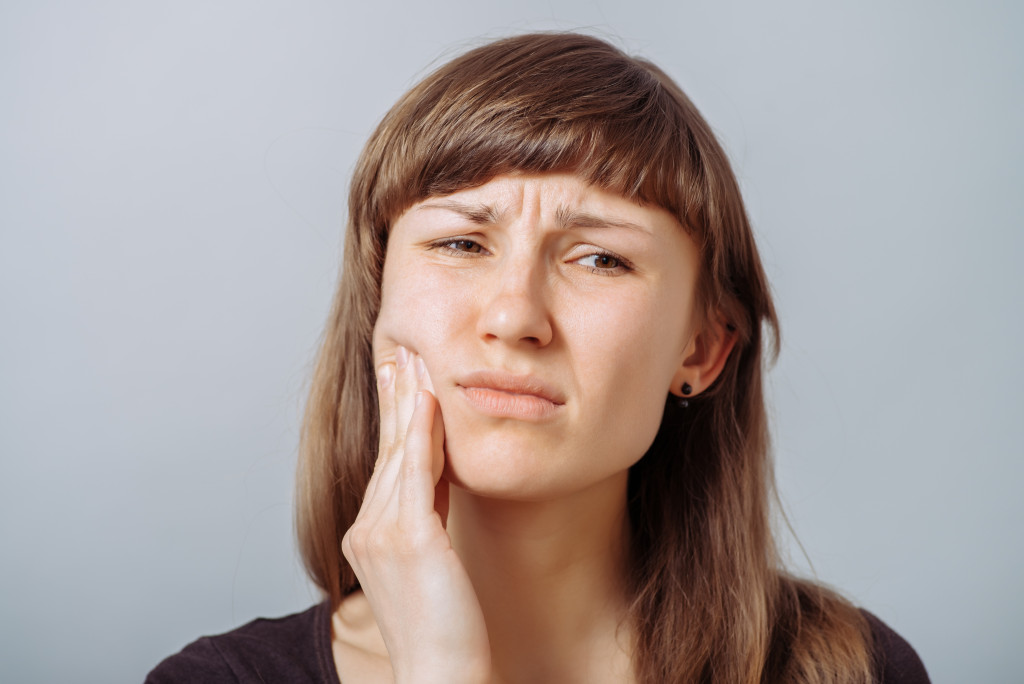Disclaimer: This website provides health information for educational purposes only and is not a substitute for professional medical advice, diagnosis, or treatment. Always seek the guidance of a qualified healthcare provider with any questions you may have.
- Understand the causes of periodontal disease.
- Maintain good oral hygiene habits.
- Visit your dentist regularly.
- Use products to manage gum disease.
- Quit smoking and drinking alcoholic beverages.
Dealing with periodontal disease can be daunting, but with the right information and strategies, you can manage and prevent it from causing further damage. Periodontal disease is a serious condition that affects the gums, bones, and other supporting structures of the teeth, which can lead to tooth loss if left untreated. This guide will provide five tips for dealing with periodontal disease.
1. Understand the Causes of Periodontal Disease
The first step in dealing with periodontal disease is to understand its causes. Poor oral hygiene is one of the main culprits behind the development of periodontal disease. Plaque, a sticky film of bacteria that forms on the teeth, can accumulate and harden into tartar if not removed regularly. Tartar can cause gum inflammation and infection, leading to periodontal disease.
Here are the other possible causes of periodontal disease:
Genetics
It is believed that genetics can play a role in the development of periodontal disease. Research has suggested that certain genetic factors can predispose some people to gum disease. These genetic factors may make individuals more susceptible to bacterial infections or cause them to have weaker immune systems, making them less able to fight off infections than others. If you have a family history of periodontal disease, you must have regular checkups with your dentist.
Hormonal Changes
Changes in hormones during pregnancy, puberty, and menopause can increase a person’s risk of developing periodontal disease. These hormonal changes can alter the body’s ability to fight off bacteria that cause gum inflammation and infection.
Certain Health Conditions
Certain health conditions, such as diabetes and HIV/AIDS, can weaken the immune system and make it more difficult for the body to fight infection. This can increase the risk of developing periodontal disease.
Improper Diet
Eating a balanced diet can help protect against periodontal disease. Diets high in sugar and processed foods can increase the risk of gum inflammation, leading to periodontal disease. A diet rich in fruits, vegetables, and whole grains is recommended for promoting healthy gums.
2. Maintain Good Oral Hygiene Habits

Maintaining good oral hygiene habits is important to prevent and manage periodontal disease. Brushing your teeth at least twice daily with fluoride toothpaste can help remove plaque and prevent tartar buildup. Flossing daily is also essential for removing food particles and bacteria that can get stuck between your teeth and lead to gum disease.
In addition to brushing and flossing, an antiseptic mouthwash can also help kill bacteria and freshen your breath. However, it is essential to note that mouthwash should not be used as a substitute for brushing and flossing.
3. Visit Your Dentist Regularly
The importance of regular dental check-ups cannot be overstated. During your visit, your dentist will perform a thorough exam to assess the health of your teeth and gums and screen for any potential issues that may arise in the future. Additionally, your dentist may suggest effective implant dentistry to restore your teeth’s natural function and appearance. Implant dentistry includes placing a titanium post into the jawbone to support a replacement tooth or bridge, which can provide significant long-term benefits that are impossible with other dental restorations.
4. Use Products to Manage Gum Disease

In addition to regular brushing, flossing, and dental checkups, some products can help manage periodontal disease. One such product is an antimicrobial mouthwash, which can kill bacteria and prevent plaque buildup. Your dentist may also recommend a prescription mouthwash.
Another product that can help manage periodontal disease is an interdental brush, which can clean your teeth and prevent food particles and bacteria from accumulating. A water flosser, which uses a stream of water to clean between your teeth, can also effectively manage gum disease.
5. Quit Smoking and Drinking Alcoholic Beverages
Smoking and drinking alcoholic beverages can also increase the risk of periodontal disease. Smoking can cause inflammation of the gums and reduce the body’s ability to fight infection. Alcohol consumption can also dry out the mouth, which can lead to the growth of bacteria and the development of gum disease.
Quitting smoking and reducing alcohol consumption can significantly improve your oral health and prevent the progression of periodontal disease. Your dentist can provide resources and support to help you quit smoking and reduce alcohol consumption.
Final Words
Periodontal disease is a serious condition that can lead to tooth loss if left untreated. By understanding the causes of periodontal disease, maintaining good oral hygiene habits, visiting your dentist regularly, using products to manage gum disease, and quitting smoking and drinking alcoholic beverages, you can effectively prevent and manage periodontal disease. By following these tips, you can take control of your oral health and prevent periodontal disease from causing further damage.



